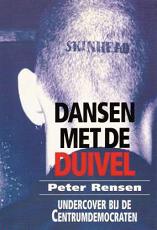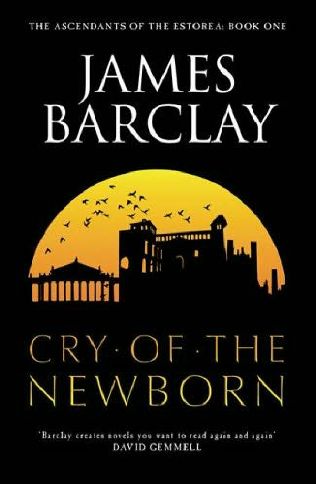So we finally come to the grand total of books read this year: 152, or almost three books a week. Yes, I’m quite proud of that.
The Horned Dinosaurs — Peter Dodson
An excellent overview of what we know about Triceratops and its relatives. Dodson doesn’t just tell what we know, but how we got that knowledge and isn’t afraid to show what isn’t known or cannot be known about Triceratops.
A Savage War of Peace — Alistair Horne
George Bush was supposed to have read this. In the unlikely case that he has, he may have noted the resemblance between the French experience in Algeria and what American troops were dealing with in Iraq.
Psychohistorical Crisis — Donald Kingsbury
A reworking of/semi-sequel to Isaac Asimov’s classic Foundation series that’s much better than Asimov’s own sequels.
Web of Angels — John M. Ford
A proto-cyberpunk novel by a vastly underrated author, with a style of storytelling that reminded me in equal parts of Zelazny and Delany.
Candle — John Barnes
A Barnes novel that actually ends on an optimistic note and with a protagonist that isn’t some masochist? Miracles still happen it seems.
War for the Oaks — Emma Bull
I don’t particularly like urban fantasy as a genre, but this is one of the novels that defined the genre.
The Perspective of the World — Fernand Braudel
The third and last volume in Braudel’s Civilisation and Capitalism series, taking a global look at the development of capitalism between the fifteenth and eighteenth centuries.
The Prince — Niccolo Macchiavelli
The book which gave us the adjective “macchiavelian”, it has a mostly undeserved reputation as an amoral treatise on how to stay in power as an autocrat.
KV – 1 & 2 — Steven Zaloga & Jim Kinnear
Another Osprey war nerd volume, on a Soviet World War II tank series not so well known as the T-34, but almost as important in the first stages of the Great Patriotic War. Heavily armoured and armed with the same 76 mm gun as the T-34, when these tanks first appeared the Germans had nothing to stop them with…
Bagration 1944 – The Destruction of Army Group Centre — Steven Zaloga
One of the most important campaigns of World War II, overshadowed by the Anglo-American invasion of Normandy in the same month. The speed and efficiency with which the Russians destroyed a German force much larger even than that during the battle for Stalingrad was a major reason for the almost complete collapse of the Eastern Front in 1944.
Anathem — Neal Stephenson
As is almost always the case with Stephenson, don’t read this novel for the plot, but read it for the various ideas he chews through on the way.
The Dutch Republic — Its Rise, Greatness, and Fall — Jonathan I. Israel
A very thorough if somewhat exhausting and occasional tedious history of the United Provinces, from its earliest roots in Burgundian times to its ultimate dissolution by Napoleon. It cost me a year to read this.
The Dragon’s Waiting — John M. Ford
A fantasy novel set ib a world in which Christianity didn’t break through, the Byzantium empire managed to restore much of the old Roman empire and some kinds of magic are real. This reminded me of some of Mary Gentle’s stories, especially the White Crow series.
The 2006 Lebanon Campaign — Stephen Biddle & Jeffrey A. Friedman
A US Army sponsored inquiry into the tactics and strategy employed by Hezbollah in the defence of Lebanon against Israeli attack in 2006. Was Hezbollah behaving as a typical guerilla movement or more like a proper army and what are the implications for US army policy?
Saturn’s Children — Charlie Stross
The last book I finished in 2008. A typical Stross novel, fastpaced, fun and smart. Awful cover on the American edition, but it is actually quite faithful to the description of the protagonist, who is in fact a redhaired sexbot whose nipples go spung. Yes, this is Stross doing Late Heinlein, warts and all, making it work.

